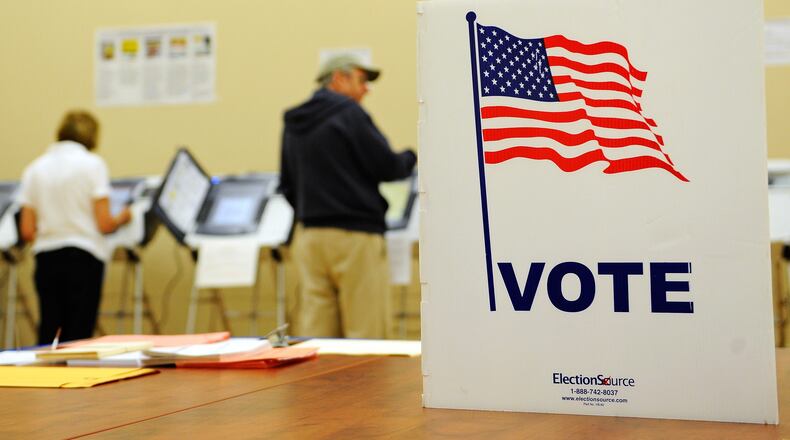Less than a week before early voting starts in Georgia's presidential election, a coalition of voting advocates filed suit Wednesday accusing Georgia Secretary of State Brian Kemp of disenfranchising thousands of residents by blocking their access to vote.
Further, the lawsuit alleges that Georgia’s use of a strict matching process for voter registration has disproportionately affected minority voters across the state, meaning the voter registration applications of black, Latino and Asian Americans in Georgia are more likely than those of white applicants to be rejected.
It is an accusation denied strongly by Kemp, who has traveled the state to tout the accessibility of Georgia’s elections. His spokeswoman, Candice Broce, said in response to the suit that “the verification process Georgia currently uses was pre-cleared by the U.S. Department of Justice in 2010.”
“This lawsuit,” Broce said, “is an effort by liberal groups to disrupt voter registration just weeks before November’s important election.”
The Georgia NAACP, the Georgia Coalition for the Peoples’ Agenda and the legal nonprofit Asian Americans Advancing Justice-Atlanta brought the suit, and are being helped by the Lawyers’ Committee for Civil Rights Under Law and the Washington-based nonprofit Project Vote, among national voting advocacy groups.
Georgia uses a voter registration process that demands all of the letters and numbers comprising an applicant’s name, date of birth, driver’s license number and last four digits of their Social Security number exactly match the same letters and numbers for the applicant on the state’s Department of Drivers Service or federal Social Security Administration databases.
If a single letter, number, hyphen, space or apostrophe does not exactly match the database information and if the applicant fails to correct the mismatch within 40 days of being notified of the problem, the application is automatically cancelled and the applicant is not placed on the registration rolls.
The suit says that process violates the federal Voting Rights Act. It found that the state denied 34,874 registration applications from July 2013 to July 2016 due to mismatched information.
About the Author
Keep Reading
The Latest
Featured




